A commercial water filter can help your business in many ways. It can remove contaminants like minerals, heavy metals, and microorganisms from your business’s water. These contaminants can make your water unsafe and give it an off-taste.
Commercial water filtration systems are often a good investment and can improve your customer’s and employees’ experience.

What Are Commercial Water Filtration Systems?
A commercial water filtration system is designed to purify water at a large scale. These systems are much more robust than traditional home filters in that they can handle much larger amounts of water in shorter periods.
There are several different types of commercial water filtration systems. Each one is especially suited to the needs of the business and is based on the water source. These water systems are often used in commercial settings that require large amounts of water, like restaurants and hotels.
They filter the water supplied through community services and make it safer to drink and improve the taste.
How Do Commercial Water Purification Systems Work?
How commercial systems work depend on they type. While each is designed to remove contaminants and improve water quality, each system takes a slightly different approach.
Different systems are best suited for specific situations. Many systems also employ two or more of these methods to make them even more useful.
1. Reverse Osmosis Commercial Filtration
One of the most popular types of commercial water filtration system is a reverse osmosis system. This system pushes water through a semi-permeable membrane. The water molecules can fit through the membrane, but other contaminants cannot.
Reverse osmosis is particularly effective at removing minerals and organic particles that can degrade water quality.
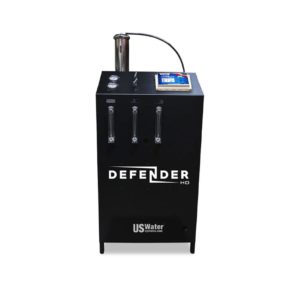
- Highly customizable system
- Filters 2,000 – 16,000 gallons per day
- Stainless steel housing & pump
- Flexible payment plan
2. Carbon Water Filter
If water is contaminated with organic particles, then a carbon filter may be a good option. A carbon water filter is made using activated carbon, also known as activated charcoal, which has been treated so that the carbon has lots of little pores on its surface, perfect for absorption.
When an activated carbon filter is used for water filtration, it employs adsorption and chemical reactions to remove particles from the water. Adsorption is the process of pulling foreign molecules into the pores of the carbon filter. In chemical reactions, an element reacts with the carbon molecules to turn into an ion, removing it from the water.
3. UV Filters
UV filters are another excellent option if you have water that is contaminated with organic matter. It’s advantageous if you’re worried that there may be bacteria or viruses that can cause disease in the water. These particles can be dangerous, so you want to make sure they’re removed.
A UV filter uses ultraviolet light to damage the DNA in bacteria and viruses, preventing them from reproducing. By using a UV filter, you can prevent the spread of disease through the water. UV filters are also the most expensive of the types of water filters.
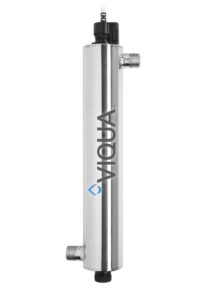
- Removes 99% of harmful bacteria
- 13 – 34 GPM
- Low power consumption
- Monthly payment plan available
What Contaminants Do They Remove?
There are several types of contaminants that a commercial water system can remove. When it comes to water filtration, you must first consider some of the traits of water. The water flowing through your pipes is more than just H2O. There are many things in the water that can make it less than ideal and can be removed with a filtration system.
1.TDS
First, there are TDS, which stands for Total Dissolved Solids. These are small mineral and organic particles dissolved in your water beyond just the hydrogen and oxygen. The minerals include potassium, calcium, magnesium, sodium, bicarbonates, and more. Some of these minerals occur in water naturally, while others can result from problematic conditions in the environment.
2. Water Hardness
Water hardness refers to the number of elements and compounds in the water that can form scales. These elements are typically calcium and magnesium, but other elements can contribute to water hardness as well.
While hard water isn’t necessarily dangerous to drink, it can have an unpleasant taste and may not look as transparent, which can be off-putting for most people. Learn more about water hardness scale.
3. pH Levels
The pH level refers to the amount of acidity in a substance. Pure water has a pH of 7, which is a neutral pH. Anything above seven is considered basic, and anything below seven is deemed to be acidic. Water with a pH of close to 7 is safe for drinking. Anything too high or low isn’t safe and will need to be filtered before consumption.
Learn more: What is the Ph of Reverse Osmosis Water?
Commercial vs Regular Whole House Filters
The main difference between commercial water filtration systems and regular whole house systems concerns where the water is filtered.
The water is filtered for a commercial filtration system as it leaves the pipe right before it comes through the faucet. The system is installed under the sink or water dispenser.
A regular whole house system filters the water as it leaves its source before it enters the home. Complete house systems are placed on the main water line and make water safe for general uses like bathing and washing dishes.
While it also makes water safe for drinking, it uses a larger membrane and isn’t as effective as a commercial filtration system.
Can Regular Whole House Filters Be Used on a Commercial Scale?
While you can use a regular whole house water filtration system on a commercial scale, you’ll be better off going with a commercial water filtration system in most cases. These systems are designed to handle commercial water needs and are a must if you’re in the restaurant or beverage system.
If you serve food or drinks, bad-tasting water can cause a handful of problems. Your customers don’t want to be served water that is cloudy or has a funny taste.
While you can serve bottled water, over time, it’ll be less costly to invest in a commercial water filtration system. If you have a soda fountain and/or beer on tap, then you’ll want to use filtered water so as not to alter the taste of your other beverages.
If you’re located in an area where the water is problematic, such as high levels of heavy metals or other dangerous contaminants, you’ll want to use a commercial water filtration system as these are more effective at removing the contaminants. You’ll have peace of mind knowing that the water in your building is safe to drink.
Learn more about how much water filtration systems costs.
Where to Get Commercial Filter Systems
If you’re ready to purchase a commercial water filtration system, you have several options when it comes to purchasing one. You can buy these systems through large stores like Lowes, Home Depot, or Amazon. Here, you’ll find a wide selection and lower prices.
However, there’ll most likely be less helpful information, and you won’t have any help with installation.
There are also brick and mortar and online stores that specialize in water filtration systems. These stores may be slightly more expensive, but you’ll have the added benefit of much more information to help you make the right choice.
The employees at these stores have much more knowledge and can guide you towards the system that’ll meet your needs.
If you want the ultimate in service, you can go through a full-service water filtration company. These companies specialize in everything to do with water filtration.
They can meet with you, go over your exact issues and needs, and help you develop a solution that’ll work for your business.
They’ll also take care of the installation, so you know that everything is handled correctly. You’ll pay the most for this option, but you’ll also get the best possible system and have it installed correctly.
Here are 2 companies we recommend:

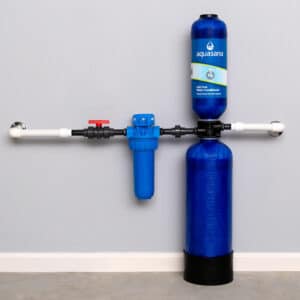
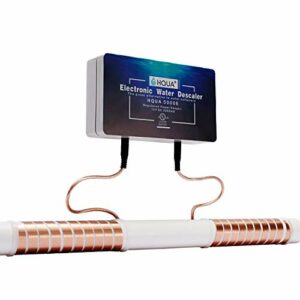
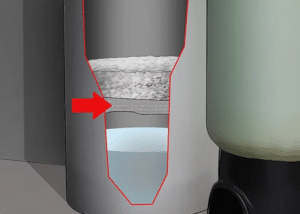
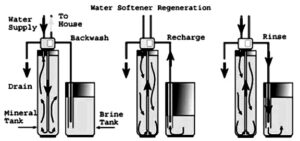
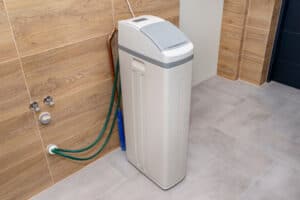
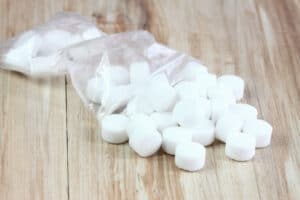
I own a small strip center that has a restaurant, nail salon, tax office and a retail business. They are all on the same water meter. I need a water filtration system that can handle the entire building. Any recommendations?
Hi Ken, thanks for reading and your question. Do all of the storefronts have their own access to the water source in your center or is there a common aggregation point that you’re envisioning to use? If the former, it would be more straightforward to have each business/storefront get a system that matches their needs. For example, a tax office’s needs is going to be dramatically different than the restaurant. If the latter, then doing one “whole-center” system has certain advantages. First things first, will need you to verify the reality of the water source and plumbing system layout/distribution to understand which way might make much more sense/viability.